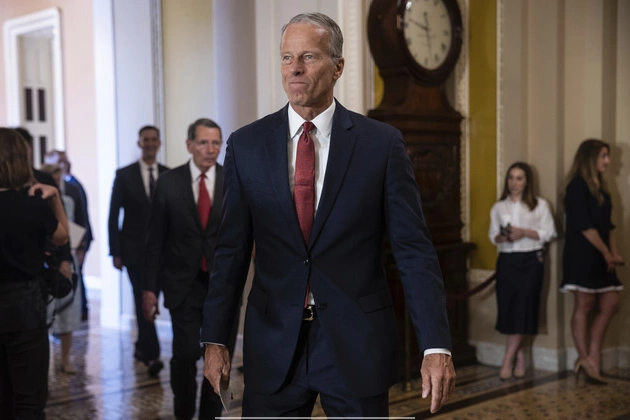
The Arithmetic Dilemma
Senate Republicans find themselves in a tight spot as they grapple with the financial intricacies of their ambitious domestic-policy bill. With crucial voting deadlines looming, the GOP faces a twofold mathematical hurdle: reconciling the significantly higher cost of the proposed tax package compared to the House’s version and finalizing substantial spending cuts to offset the expenditure.
Political Pressures and Fiscal Hawks
Under mounting pressure from President Donald Trump to expedite the bill’s passage by July 4, Senate Majority Leader John Thune and his colleagues are preparing to challenge fiscal conservatives to prioritize Trump’s legislative agenda.
House Republicans’ Concerns
However, discord brews among House Republicans who caution against a unilateral approach that could lead to internal division and delay. Members of the House Freedom Caucus and other conservatives voice apprehensions about further increasing the national debt through the Senate’s proposals.
Analysis and Cost Discrepancies
A recent nonpartisan analysis from the Joint Committee on Taxation highlights a significant disparity between the Senate and House tax packages, estimating a variance of approximately $400 billion. This contrast underscores divergent priorities, such as the permanence of business tax incentives favored by Senate Republicans.
Budget Negotiations and Spending Cuts
The escalating cost of the tax cut package poses challenges for House Republicans bound by a prior agreement linking spending cuts to the bill’s overall cost. Concerns arise as Senate Republicans aim to surpass the prescribed $1.5 trillion in spending reductions, encountering obstacles related to Medicaid costs and procedural hurdles dictated by Senate budget rules.
Future Prospects and SALT Issue
As the debate intensifies, unresolved issues like the state-and-local-tax deduction (SALT) loom large, with divergent views on the proposed modifications. Treasury Secretary Scott Bessent anticipates a resolution in the near term, but uncertainties persist as negotiations evolve amidst mounting House opposition.











